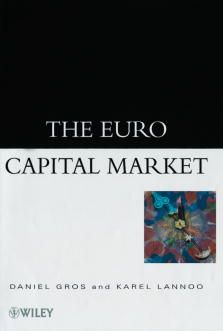The authors predict that the impact will be far-reaching, leading to a more liquid, mature and efficient capital market. The structure of capital markets in Europe and the behaviour of actors in these markets will be fundamentally affected, leading to a more integrated market. For monetary union to achieve its real objective, policy makers will need to address a wide variety of outstanding issues, in particular the taxation of savings income, accounting standards, capital market regulation and financial supervision.<br> <br> The start of monetary union on 1 January 1999 launched a process of radical change in the structure of capital markets in Europe. Whereas previously, Europe had been fragmented into many diverse national markets, a single Euro capital market is now emerging.<br> <br> This book focuses on the long-term impact that the introduction of the euro will have on European capital markets and spells out implications for the financial sector and the wider economy. It discusses what further steps need to be taken to achieve a fully integrated market.<br> <br> In particular, the book examines:<br> <br> * The institutional and regulatory framework for European capital markets<br> <br> * The structure of European capital markets on the eve of EMU<br> <br> * The regional differences and the contrasts with the US capital market<br> <br> * The central role played by banks in European capital markets and the likelihood that a more market-based system may emerge<br> <br> * The implications of EMU for organised securities markets<br> <br> * The consequences for governance and policy, and more in particular for the taxation of savings income, securities market regulation and financial supervision
The Euro Capital Market
₹9,070.00
This book is currently not in stock. You are pre-ordering this book.




